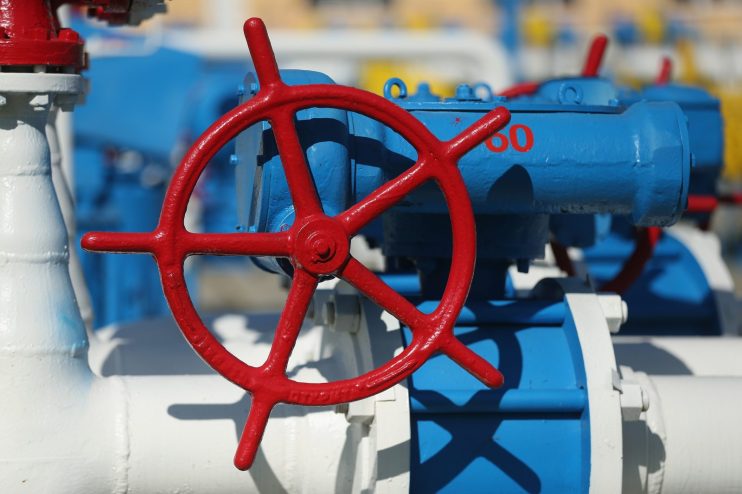Putin pushes for rouble payments causing gas prices to spike

Russia will seek payment in roubles for gas sales from “unfriendly” countries revealed President Vladimir Putin today.
He insisted Russia remained committed to serving global markets – but that there would have to be adjustments following the imposition of Western sanctions.
At a televised meeting with government ministers, Putin said: “Russia will continue, of course, to supply natural gas in accordance with volumes and prices … fixed in previously concluded contracts. The changes will only affect the currency of payment, which will be changed to Russian roubles.”
The announcement caused natural gas prices to spike over 30 per cent on both UK and European benchmarks, amid heightened concerns it would exacerbate the continent’s energy crunch.
Prices eased later in the evening but remained up over 10 per cent.
Craig Erlam, senior market analyst at OANDA said: “The decision by Vladimir Putin to insist on payments from hostile nations for Russian gas to be made in rubles has caused a stir today. European gas prices have spiked on the back of the announcement, given how big an importer the bloc is, while equity markets extended their losses in the aftermath.”

EU remains split over ramping up sanctions
Ahead of US President Joe Biden’s continental tour, the European Union (EU) remains split over whether to ramp up sanctions on Russia.
Poland, Ireland, and Lithuania have all called for restrictions on Russian oil – in line with measures announced by the US and UK.
However, both Germany and Netherlands have ruled out the prospect, with the trading bloc dependent on Russia for 40 per cent of its gas and around a third of its oil.
EU gas imports from Russia have fluctuated between 200m to 800m euros ($880m) a day so far this year – but the currency change could throw that trade into disarray.
While the Russian rouble briefly leapt to a three-week high against the dollar today, the currency is still down around 20 per cent following its invasion of Ukraine with Western measures targeting its financial institutions and central bank.
Putin said the government and central bank had one week to come up with a solution on how to move these operations into the Russian currency and that gas giant Gazprom would be ordered to make the necessary changes to gas contracts.
While the EU has so far stopped short of sanctions – it is starting to employ measures to boost energy independence, with member states set to commit to maintaining gas storage levels at 90 per cent ahead of winter.
Nevertheless, both UBS and Bruegel have warned this month severe consumption reductions would be needed to avoid energy shortages if the EU cut itself off from Russian fossil fuels.
Commenting on Europe’s future approach, Investec’s head of commodities Callum Macpherson told City A.M.: “As we move into milder weather and heating demand declines, the question becomes what price does Europe need to pay to attract LNG here rather than Asia, to help fill storage over the summer, ready for next winter.”